Python: Penetration Testing for Developers. Execute effective tests to identify software vulnerabilities Christopher Duffy, Mohit Raj, Cameron Buchanan, Andrew Mabbitt, Terry Ip, Dave Mound, Benjamin May
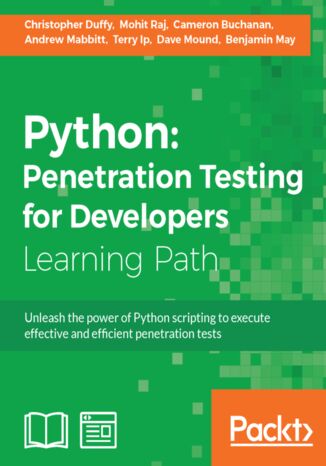



- Autorzy:
- Christopher Duffy, Mohit Raj, Cameron Buchanan, Andrew Mabbitt, Terry Ip, Dave Mound, Benjamin May
- Wydawnictwo:
- Packt Publishing
- Ocena:
- Dostępne formaty:
-
PDFePubMobi
Opis
książki
:
Python: Penetration Testing for Developers. Execute effective tests to identify software vulnerabilities
In the first module, we’ll show you how to get to grips with the fundamentals. This means you’ll quickly find out how to tackle some of the common challenges facing pentesters using custom Python tools designed specifically for your needs. You’ll also learn what tools to use and when, giving you complete confidence when deploying your pentester tools to combat any potential threat.
In the next module you’ll begin hacking into the application layer. Covering everything from parameter tampering, DDoS, XXS and SQL injection, it will build on the knowledge and skills you learned in the first module to make you an even more fluent security expert.
Finally in the third module, you’ll find more than 60 Python pentesting recipes. We think this will soon become your trusted resource for any pentesting situation.
This Learning Path combines some of the best that Packt has to offer in one complete, curated package. It includes content from the following Packt products:
? Learning Penetration Testing with Python by Christopher Duffy
? Python Penetration Testing Essentials by Mohit
? Python Web Penetration Testing Cookbook by Cameron Buchanan,Terry Ip, Andrew Mabbitt, Benjamin May and Dave Mound
Wybrane bestsellery
Christopher Duffy, Mohit Raj, Cameron Buchanan, Andrew Mabbitt, Terry Ip, Dave Mound, Benjamin May - pozostałe książki
Packt Publishing - inne książki
Dzięki opcji "Druk na żądanie" do sprzedaży wracają tytuły Grupy Helion, które cieszyły sie dużym zainteresowaniem, a których nakład został wyprzedany.
Dla naszych Czytelników wydrukowaliśmy dodatkową pulę egzemplarzy w technice druku cyfrowego.
Co powinieneś wiedzieć o usłudze "Druk na żądanie":
- usługa obejmuje tylko widoczną poniżej listę tytułów, którą na bieżąco aktualizujemy;
- cena książki może być wyższa od początkowej ceny detalicznej, co jest spowodowane kosztami druku cyfrowego (wyższymi niż koszty tradycyjnego druku offsetowego). Obowiązująca cena jest zawsze podawana na stronie WWW książki;
- zawartość książki wraz z dodatkami (płyta CD, DVD) odpowiada jej pierwotnemu wydaniu i jest w pełni komplementarna;
- usługa nie obejmuje książek w kolorze.
Masz pytanie o konkretny tytuł? Napisz do nas: sklep@helion.pl
Książka drukowana





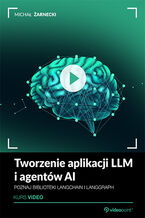
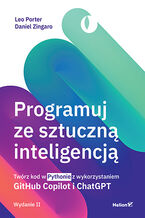



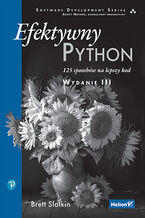

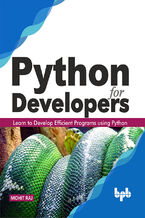

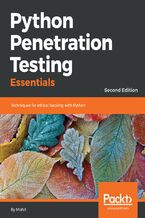
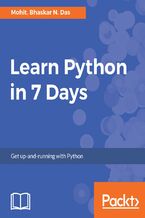
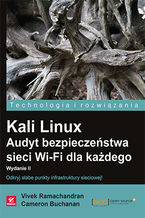
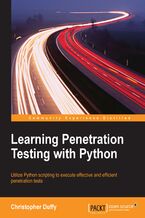
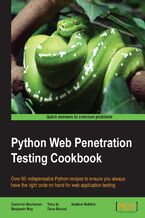
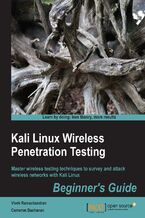
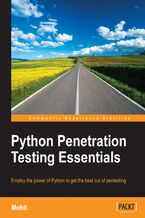
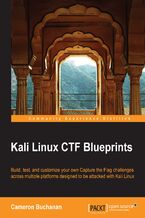
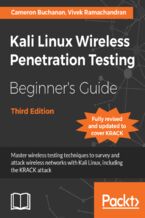





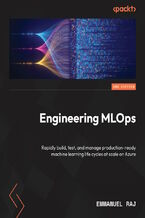
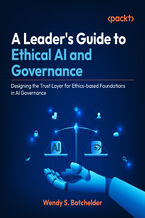
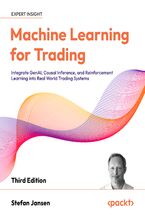
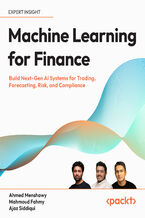
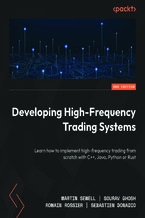
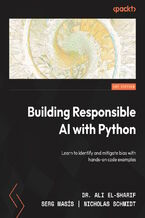
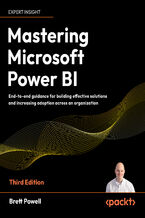
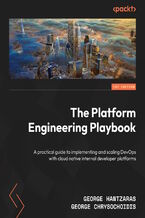





Oceny i opinie klientów: Python: Penetration Testing for Developers. Execute effective tests to identify software vulnerabilities Christopher Duffy, Mohit Raj, Cameron Buchanan, Andrew Mabbitt, Terry Ip, Dave Mound, Benjamin May
(0)